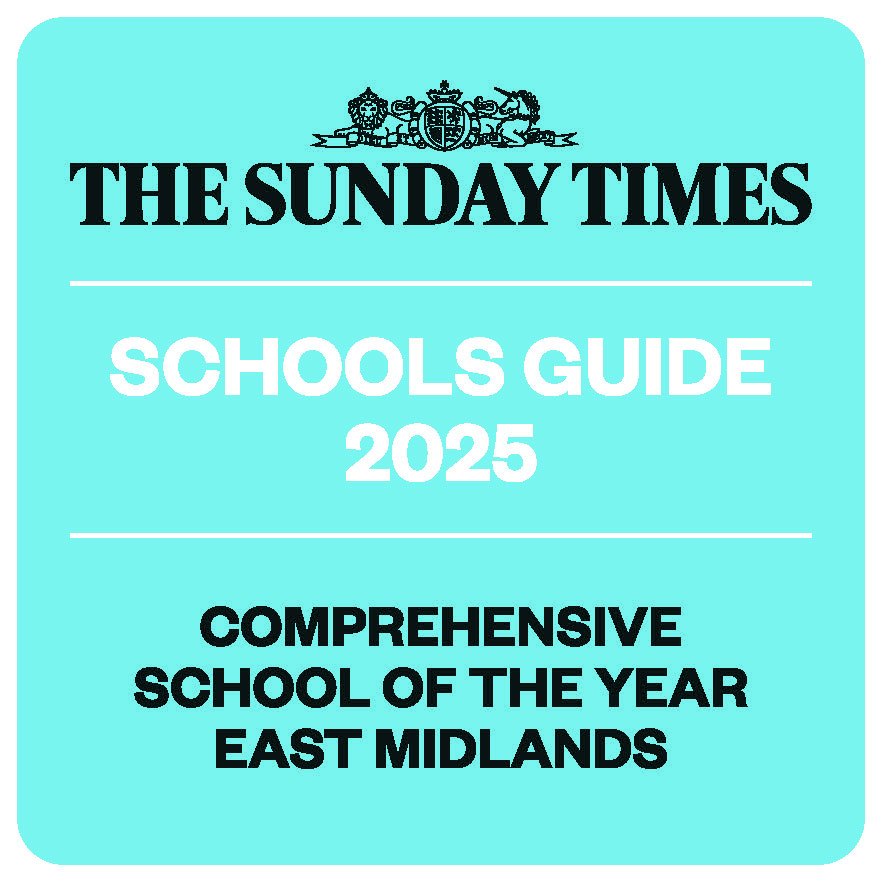PSHE at Northampton School for Boys
PSHE or Personal, Social, Health and Economic Education is taught at Northampton School for Boys throughout Year 7 – 13 by our dedicated specialist PSHE team. The programme is overseen by our Director of PSHE, Miss Helen Kennedy and Mrs Lindsay Greenaway, Assistant Headteacher for Personal Development, and we have a team of teachers who oversee different aspects of PHSE including Miss Hannah Rickaby who is our Careers Leader responsible for Work Related Learning.
Our delivery of PSHE focusses on creating a safe classroom for preventative education, with scenario-based learning and a non-judgemental approach so that our students can explore issues confidently and curiously. Our students learn through a collaborative approach, discussion and debate and critical thinking on all aspect of PSHE. Our PSHE curriculum is enhanced by our Personal Development week, which takes place in the final week of Term 2 each academic year. This is where students can experience a “deep dive” into different areas of PSHE and Personal Development and hear from inspirational outside speakers.
At NSB, PSHE is delivered in a spiral curriculum, building on previous knowledge each term and each year, in an age-appropriate manner, following seven key themes. Students build on previous learning each year through a collaborative approach, discussion, debate, critical thinking and applied learning in order to give them the knowledge and skills needed to make informed and safe decisions about themselves and others as part of preparing them for life in modern Britain.
The seven themes that our students study are:
Equalities, Health & Wellbeing, Relationships, Careers, Personal Safety, Financial Wellbeing and Environmental Education.
The vision behind each strand is as follows:
Equalities
Aims to promote an inclusive understanding of diversity that equips students to challenge stereotypes and discrimination. Through critical exploration of contemporary case studies, students are empowered to respect and celebrate differences, fostering a more equitable and cohesive society. This is rooted in the study of the Equalities Act 2010 and it’s 9 protected characteristics: Race, Religion, Sex, Gender Reassignment, Disability, Age, Sexuality, Marriage and Civil Partnership, Pregnancy and Maternity.
Health & Wellbeing
Aims to create a vibrant school community where every individual thrives through active lifestyles and holistic wellbeing.
Relationships
Aims to provide an accurate source of information for all students on relationships and intimacy that is media-informed, age appropriate and inclusive. Through social-emotional learning, all students will have the tools to have fulfilling, healthy relationships, know how and where to access support, and see relationships and intimacy as an enriching part of their lives.
Careers
Aims to provide broad and inclusive access to information and guidance that helps all students make informed decisions about their futures, so that they may have fulfilling careers.
Personal Safety
Aims to equip all students with the knowledge and skills to keep themselves and others safe, make informed decisions, identify and navigate potential risks both face-to-face and online, all while fostering healthy relationships and building confidence.
Financial Wellbeing
Aims to equip all students with the financial literacy necessary to successfully navigate adult life, navigate the complicated feelings they have and will have around money and equip young people with the knowledge needed to make safe decisions around money.
Environmental Education
The study of environment and sustainability is vital to how we interact with the world throughout our lives. We aim to ensure that students have a robust knowledge of how to be sustainable and take active care for the environment, ensuring that all students can seek to care for their future.
Assessment in PSHE:
Students are assessed in PSHE using a range of methods each term, such as ABC discussions, responding to scenarios or creating a product. These are used by their teacher to assess their understanding of key concepts and their use of PSHE skills.
Students are measured against “I can” statements relating to the unit of work being studied. Using these statements, a judgement is reached on their working grade; Grade 1 – Working Beyond, Grade 2 – Working At or Grade 3 – Working Towards.
Relationships and Sex Education (RSE)
Current regulations and guidance from the Department for Education state that all Secondary schools must deliver Relationships and Sex Education as today’s young people are part of an increasingly complex world where they need to know how to be safe and healthy and how to manage their academic, personal, and social lives in a positive way. We therefore follow the statutory guidance from the Department of Education on Relationships Education, Relationships and Sex Education (RSE) and Health Education.
Relationships and Sex Education at Northampton School for Boys aims to:
Provide all pupils with accurate and unbiased knowledge
Provide opportunities for open and accepting discussion; to challenge views, attitudes, and beliefs in order for our pupils to form their own personal values grounded in respect.
Provide the knowledge and skills needed in order to make safe and informed decisions about their relationships, reproductive health and intimacy.
Students study RSE as part of an age-appropriate spiral curriculum from Year 7 – 13 within their PSHE lessons. Sex Education at Northampton School for Boys involves learning about the physical, social, and emotional aspects of human sexuality and behaviour, including human reproduction. This includes conception and contraception, safer sex, sexually transmitted infections, and sexual health, as well as the influence of various media and peer pressure on sexual behaviour. Relationships Education involves learning about the physical, social, legal, and emotional aspects of human relationships, including friendships, intimate, sexual, and committed relationships, and family life. Relationship education supports children to be safe, happy and healthy in their interactions with others now and in the future. In addition, puberty and understanding the changing body is taught as part of Health education. Relationship education is compulsory for all students.
The Right to Withdraw from Sex Education:
According to DfE guidelines, Parents and Carers have the right to withdraw their children from some or all parts Sex Education delivered within RSE. All students, three full terms before they turn 16 have the right to decide if they wish to receive Sex Education or withdraw. Should a student wish to receive Sex Education at this time, they can do so without Parent/Carer consultation. Mrs Lindsay Greenaway will initially email students to make them aware of this.
Further information on our RSE curriculum and the withdrawal process can be accessed by viewing our RSE policy.
Should Parents/Carers wish to withdraw their child from Sex Education, they will need to indicate which lessons specifically they wish to withdraw their child from on a Withdrawal Form and give written explanation for withdrawal. A copy of withdrawal requests will be placed in the pupil’s educational record. Any request for withdrawal will be followed by a conversation with Mrs Lindsay Greenaway, Assistant Headteacher and will be passed on to the Head, Mr Bernard to sanction, if agreed. As the curriculum is different for each Year group, a different Withdrawal Form is required each year.
All pupils who are withdrawn from Sex Education will receive alternative PHSE education during those lessons.










